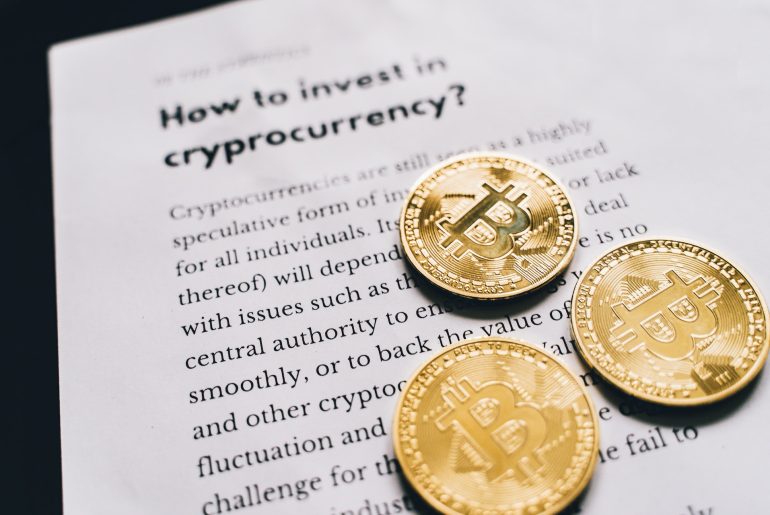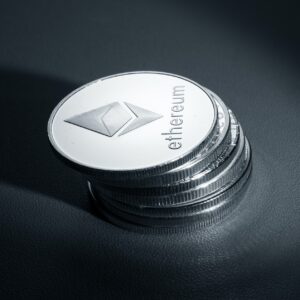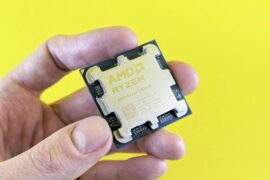This article may contain references to products or services from one or more of our advertisers or partners. We may receive compensation when you click on links to those products or services. Nonetheless, our opinions are our own.
The information presented in this article is accurate to the best of our knowledge at the time of publication. However, information is subject to change, and no guarantees are made about the continued accuracy or completeness of this content after its publication date.

Updated by Albert Fang
In 2014, the People’s Bank of China (PBOC) started to conduct digital currency research to solve the cashless problem happening all around China. To get advanced tips for digital Yuan trading, you can check https://altcoinsidekick.com. In 2016, PBOC set up a digital currency research institute, and Bloomberg News reported on Dec. 1st that PBOC is now testing a prototype for its digital currency.
With the acceptance of the Alipay mobile app in some stores in China, and PBC’s efforts to promote CBDC development, people are predicting a fast-growing trend for the Digital Yuan in 2022. In the past, people were accustomed to using paper notes to pay, but nowadays, paper notes are gradually fading away.
In China, Tencent’s WeChat Pay and Alibaba’s Alipay are now widely accepted, while people in Taiwan and Hong Kong are more likely to use apps. In addition, electronic money has been widely applied in Japan and South Korea. In addition to the acceptance of Alipay in stores in China, there are more and more digital currency transactions in major cities like Beijing, Shanghai, and Shenzhen. In response to the predicted growth trend for the digital yuan in 2022, Jason Zhang believes that this trend will be accelerated when China’s CBDC is officially established. But, first, let’s discuss the increasing traction of the digital yuan in china.
Digital Yuan’s integration with payment companies:
In the payment industry, Alipay is now the leading mobile payment app in China. It already has 438 million users as of Dec 2017, and it took only 7 years to reach this vast number. Alipay has already partnered with Tmall, Taobao, and its parent company, Alibaba Group Holding Limited (BABA), to provide services to millions of merchants in China. It is estimated that Alipay will process RMB 26 trillion transactions this year, almost equal to its competitor’s WeChat Pay transaction volume. WeChat Pay has an estimated 25 trillion transactions for 2018. Alipay is also integrated into Ping an Insurance’s mobile app.
Alipay is being accepted by merchants like Starbucks, Subway, and KFC. As for WeChat, Pay has 600 million users as of Dec 2017 and is also integrated into Tencent’s chat apps QQ and WeChat.
In parallel with Alipay, WeChat Pay is being accepted by merchants like Wanda Cinema Line Co., Ltd., Ctrip.com International Ltd (CTRP), and Starbucks China (SINA). In addition to those merchants, JD.com Inc. (JD) has teamed up with ten pay to offer its own digital currency payment service on its platform, similar to Alipay or WeChat pay.
Integrating digital yuan into these payment firms seems to be highly beneficial for both these companies and the users. Alipay is strengthening its ties with Alibaba Group, which has a global influence. As for WeChat Pay, it was acquired by Ten cents, which is another huge company with a global influence. Therefore, people in China can enjoy paying via digital currency when they come across these apps and payment companies.
Voted "Best Overall Budgeting App" by Forbes and WSJ
Monarch Money helps you budget, track spending, set goals, and plan your financial future—all in one app.
Get 50% OFF your first year with code MONARCHVIP
Central Bank Digital Currency (CBDC) will accelerate the growth trend:
To avoid the circulation of fake money in China and keep the price level stable, China’s central bank has recently announced that it has issued its own CBDC. Having completed the research, it already created its own CBDC and launched it in 2021
The CBDC issued by the PBOC has been designed with characteristics similar to other CBDCs. The PBOC will have a supervising role in the creation of CBDCs and related policies. Also, the central bank can offer digital currency and CBDC on the platform as long as they comply with legal norms and security requirements.
The speed of creating policies and regulations governing the creation of CBDCs is faster than other countries, which means that China has an advantage in this field.
Pros of digital Yuan in Alipay:
- Convenience: Alipay is a popular mobile payment app in China that can be linked to credit cards, bank accounts, and financial services. The government will extend this convenience to include digital money, and users can acquire it at their fingertips.
- Security: Alipay and WeChat pay run on the online payment platform of Alibaba Group Holding Limited (BABA) or Ten cents, which means that these payment apps are highly secured, for there are no links between these apps and third-party servers. Thus, it will protect users from viruses and other cybersecurity threats. Moreover, the digital yuan incurs an external layer of security that increases the security of payments proceeded by these firms overall.
- The convenience of paying without cash: China’s CBDC is expected to replace paper money and notes, which are here to stay. Therefore, integrating digital yuan into Alipay, WeChat Pay, and JD Pay will provide a huge convenience for the payers and merchants because users can quickly complete their payments with a mobile app. Moreover, these apps have already been accepted by millions of users throughout china, so it is almost certain that this new integration will be well received.
In conclusion, the digital currency has become one of the hottest topics in finance since its value is rising gradually.

Reviewed and edited by Albert Fang.
See a typo or want to suggest an edit/revision to the content? Use the contact us form to provide feedback.
At FangWallet, we value editorial integrity and open collaboration in curating quality content for readers to enjoy. Much appreciated for the assist.
Did you like our article and find it insightful? We encourage sharing the article link with family and friends to benefit as well - better yet, sharing on social media. Thank you for the support! 🍉
Article Title: Digital Yuan to Gain Further Traction with Acceptance of Alipay
https://fangwallet.com/2022/10/20/digital-yuan-to-gain-further-traction-with-acceptance-of-alipay/The FangWallet Promise
FangWallet is an editorially independent resource - founded on breaking down challenging financial concepts for anyone to understand since 2014. While we adhere to editorial integrity, note that this post may contain references to products from our partners.
The FangWallet promise is always to have your best interest in mind and be transparent and honest about the financial picture.
Become an Insider

Subscribe to get a free daily budget planner printable to help get your money on track!
Make passive money the right way. No spam.
Editorial Disclaimer: The editorial content on this page is not provided by any of the companies mentioned. The opinions expressed here are the author's alone.
The content of this website is for informational purposes only and does not represent investment advice, or an offer or solicitation to buy or sell any security, investment, or product. Investors are encouraged to do their own due diligence, and, if necessary, consult professional advising before making any investment decisions. Investing involves a high degree of risk, and financial losses may occur including the potential loss of principal.
Source Citation References:
+ Inspo










































